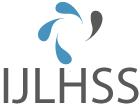Research Area: Constitutional Law
Title: CONSTITUTIONAL COMPONENTS TO SOLICIT AND HOLD THE FREE AND FAIR ELECTION: BANGLADESH PERSPECTIVE
Keywords: Constitution, Component, Free and Fair, Election, Bangladesh
Author(s): Md. Ali Morsad Kazem
Author’s Institution: Comilla University, Bangladesh
Volume 5 - Issue 3
Abstract: Free and fair elections are a requirement for establishing a democratic rule of law in a country. In democracies, people commonly exercise their executive and legislative powers by electing representatives who speak for them and act as their voice in government. However, almost all modern states, including Bangladesh, have incorporated some crucial provisions in their own constitutional mechanisms to secure free and fair elections. According to this idea, the only source of authority for the government in every state is the will of its citizens, as represented through regular, authentic, and fair elections based on an equal, secret, and universal franchise. Although those constitutional mechanisms were partially successful in providing free and fair elections in certain situations, their failure was also noticeable. This article tries to figure out the constitutional and other legal apparatus of the Election Commission, as well as how well the election commission is capable of staging a free and fair election under the existing legal environment.
Research Area: Constitutional Law
Title: EXECUTIVE-LEGISLATIVE RELATIONS IN CONTEXT OF THE GOVERNOR’S POWER OF PROCLAMATION IN NIGERIA: A CONSTITUTIONAL ANALYSIS
Keywords: Constitution, Executive-Legislative Relation, Power, Proclamation, Nigeria
Author(s): Olusola Babatunde Adegbite
Author’s Institution: University of Hertfordshire, United Kingdom
Abstract: For over two years now, a federating unit in Nigeria called Edo state has been enmeshed in a constitutional crisis wherein the Governor and 14 lawmakers-elect of the House of Assembly, has been locked in a battle of wit, which has seen lawmakers-elect frozen out of legislative activities. At the centre of the crisis is the exercise of the Governor’s power of proclamation under Nigeria’s 1999 Constitution and how this destabilised executive-legislative relations in the state. The matter has had a deleterious effect on the country’s constitutional practice, given that at the height of the power tussle, it did bring the peace and stability of the state, and in extension that of the country to a tipping point. The key issues in this crisis are worthy of scholarly examination, in order to forestall similar occurrences in the future, as well as deepen the country’s constitutional practice. This presents a constitutional analysis of the Governor’s proclamation power under the Constitution, the novel issues it has thrown up, and the dangers it poses for Nigeria’s developing constitutional practice. It canvasses the urgency of amending problematic parts of the country’s Constitution which deals with the exercise of this power. The goal is to trigger far-reaching constitutional reforms which won’t just only be useful in resolving this crisis but would, more importantly, be key in strengthening democratic governance in the country.
Research Area: Social Science
Title: CONSUMERS PROTECTIVE REGIMES IN THE HOSPITALITY INDUSTRY IN NIGERIA: A REVIEW
Keywords: Consumers Protective, Hospitality Industry, Nigeria
Author(s): Dr. Jacob Otu Enyia and Cleverty Afu Njong
Author’s Institution: University of Calabar, Nigeria
Abstract: This paper reviews the consumer’s protective regimes in the hospitality industry in Nigeria. The work also appraise conceptual framework and the meaning of consumer, and service providers in the hospitality industry, consumer protection issues in the hospitality industry, duties of the operators of hospitality services and some criticism and the ambiguity of section 2 of the Akwa Ibom State innkeepers and hotel proprietors. Consumers of services in the hospitality industry in Nigeria encountered a number of issues that in turn make them victims of defective services and deficient goods such as drinks and food. Other consumer issues considered in this paper are inter alia, the security and safety of the guest; whether the extent legislation has provided adequate protection for the consumer in the event of breach of his rights by the hotelier and when tort base regime can be resorted to in the event of breach of consumer rights by the hotel proprietors. The paper, therefore, recommends among others that the law should endeavour to balance the interest of the guests and that of the service providers for a robust hospitality industry that will yield foreign exchange for Nigeria.
Research Area: Social Science
Title: ENVISIONING THE EFFECTIVE IMPLEMENTATION OF THE MARRAKESH TREATY FOR BLIND, VISUALLY IMPAIRED, AND PRINT-DISABLED INDIVIDUALS IN MAURITIUS
Keywords: Marrakesh Treaty, Mauritius, print-disabled, blind and visually-impaired, access to printed works
Author(s): Neel Raamandarsingh PURMAH
Author’s Institution: Middlesex University Mauritius, Mauritius
Abstract: The Marrakesh Treaty has been hailed as the key to unlocking the door for visually-impaired or print-disabled individuals to have more equitable access to published works. Its most innovative aspect resides in its provision of mandatory copyright exceptions with a view of facilitating the cross-border exchange of published works in an accessible format for individuals with print disabilities. This could have far-reaching benefits in terms of closing the gap on the book famine for visually-impaired persons worldwide, in particular in developing nations such as the Republic of Mauritius. While Mauritius ratified the Marrakesh Treaty on 11 January 2021, it has only entered into force on 11 April 2021. It is therefore well-timed to examine to what extent can the Marrakesh Treaty be effectively implemented for print-disabled individuals in Mauritius to enjoy their rights to access information and to participate in cultural life on an equal basis with others. First, the paper will explore the rationale behind the development and adoption of the Marrakesh Treaty. Second, the paper will elaborate on a human rights framework for copyright. Finally, the paper will provide significant legal and policy recommendations for both state and non-state actors to fully and meaningfully give effect to the treaty, including through the development of a clear action plan, and the role of governmental and non-governmental stakeholders in facilitating access to published works for print-disabled individuals in Mauritius.
Research Area: Social Science
Title: THE CONTRIBUTION OF SELF-EFFICACY BELIEFS TO ACADEMIC ACHIEVEMENT: A CROSS-SECTIONAL STUDY OF UPPER PRIMARY SCHOOL CHILDREN IN KENYA
Keywords: Self-Efficacy, Beliefs, Academic Achievement, Upper Primary School, Kenya
Author(s): Dr. Joab Malea Kinzi
Author’s Institution: Tom Mboya University College, Kenya
Abstract: Many educational psychologists are interested in understanding the determinants of academic achievement among children. Among the many other factors, self-efficacy beliefs have proved to be important contributors to academic achievement. Self-efficacy beliefs refer to the judgment people hold about their capabilities to organize and affect courses of action to attain given goals. The purpose of this study was to examine the extent of the contribution of self-efficacy beliefs to academic achievement at the end of upper primary school in Kenya. the objective of the study was: To determine gender differences in self-efficacy belief and academic achievement of upper primary school Children; and to determine the contribution of self-efficacy belief to academic achievement at earlier and later stages of upper primary school Children. The target population was 4120 children, 1960 boys, and 2160 girls, ranging in age from 10 to 15 years. The research analysis involved t-tests, the determination of means and standard deviations, and Pearson’s correlation. The contribution of self-efficacy belief was analysed using a linear regression equation model. The findings were that the self-efficacy of children at the age of 10-15 years contributed 22.4% to their academic achievement. On the other hand, academic achievement at these ages (10 – 15 years) in turn contributed to self-efficacy beliefs. According to the findings, self-efficacy beliefs partly mediated the contribution to academic achievement. It was concluded that self-efficacy was one of the interventions that regulate children’s academic achievement through enhancing their learning activities. These findings are significant to global education stakeholders and state departments of education.

